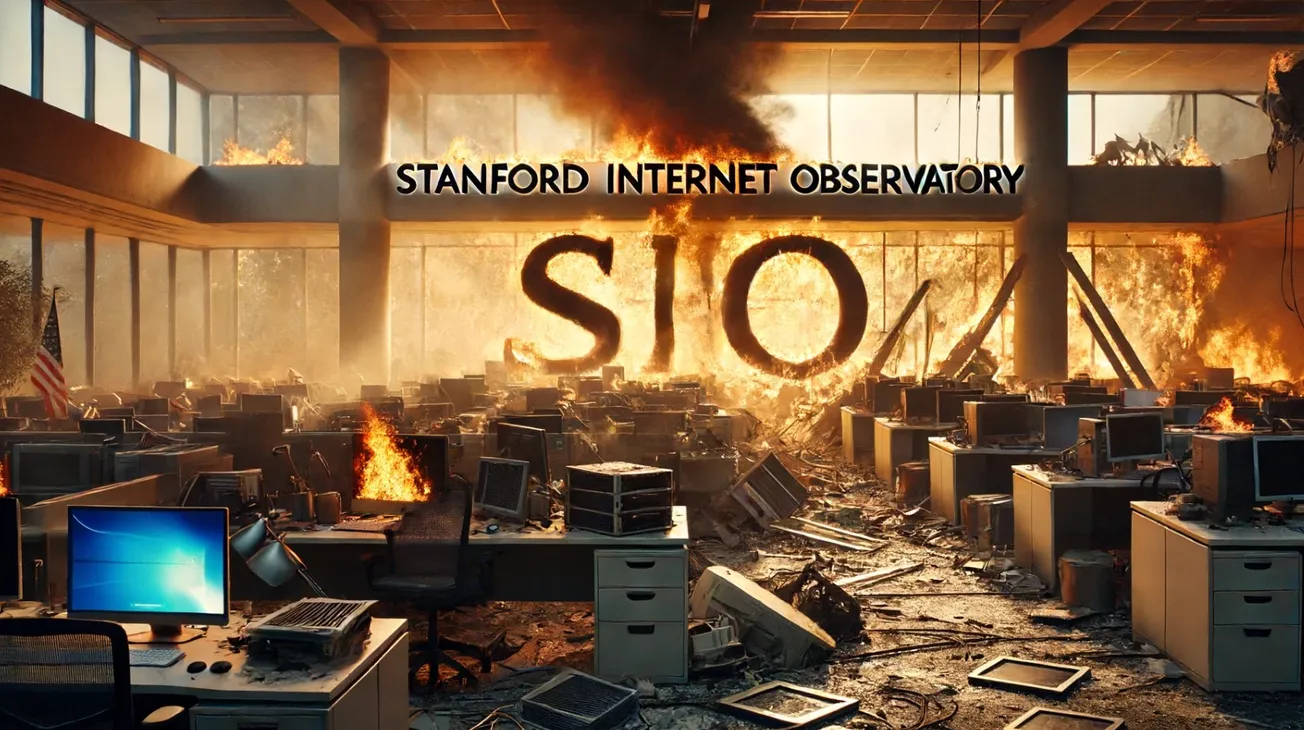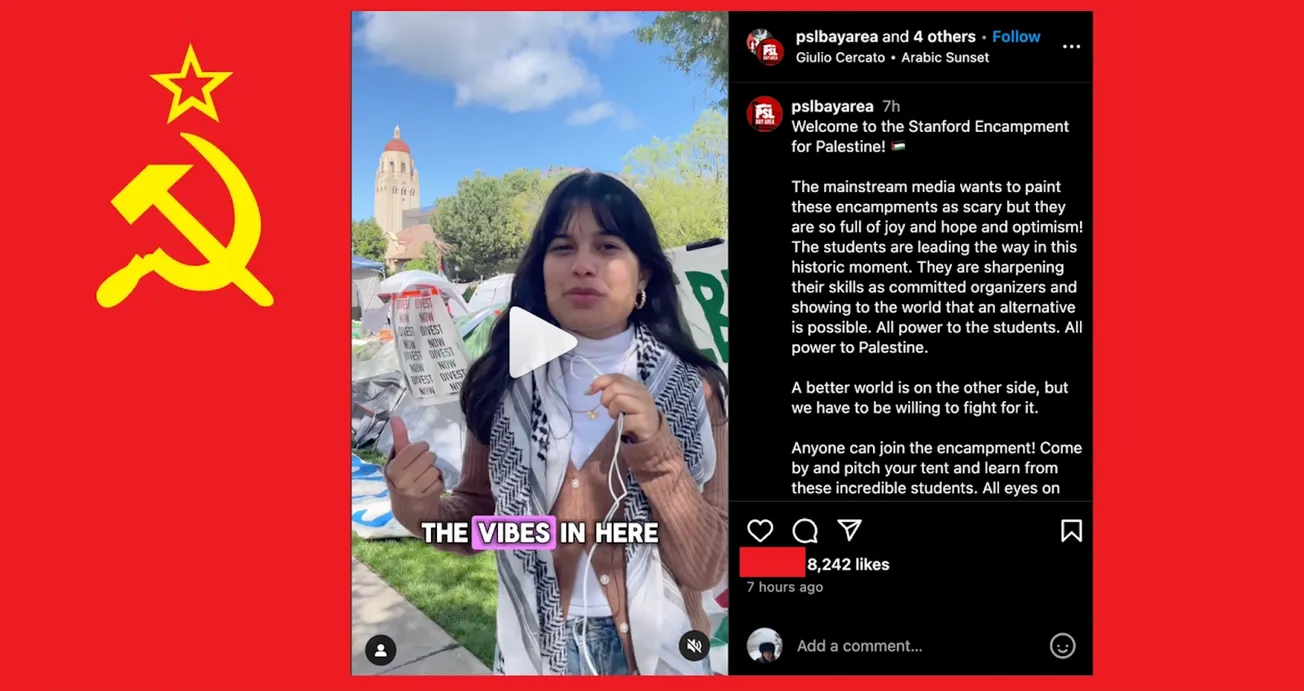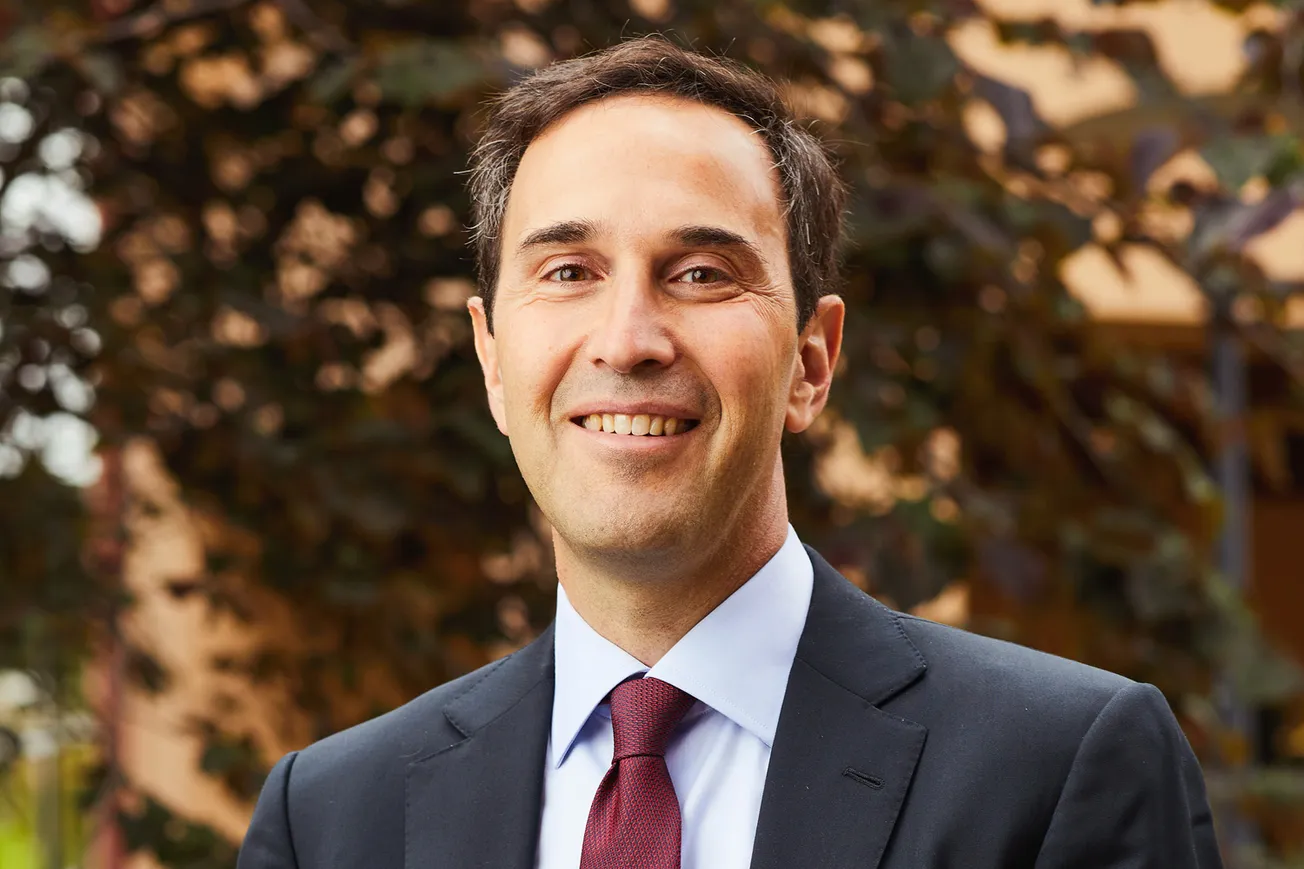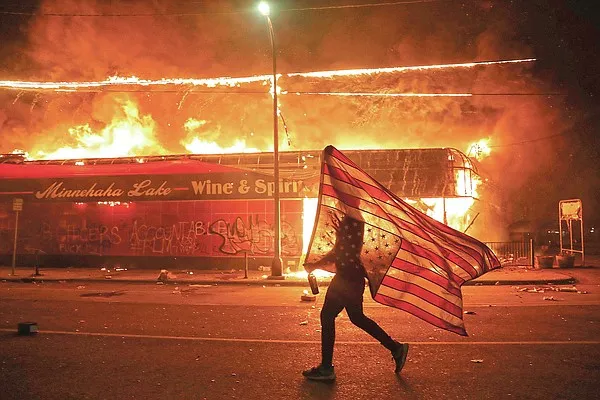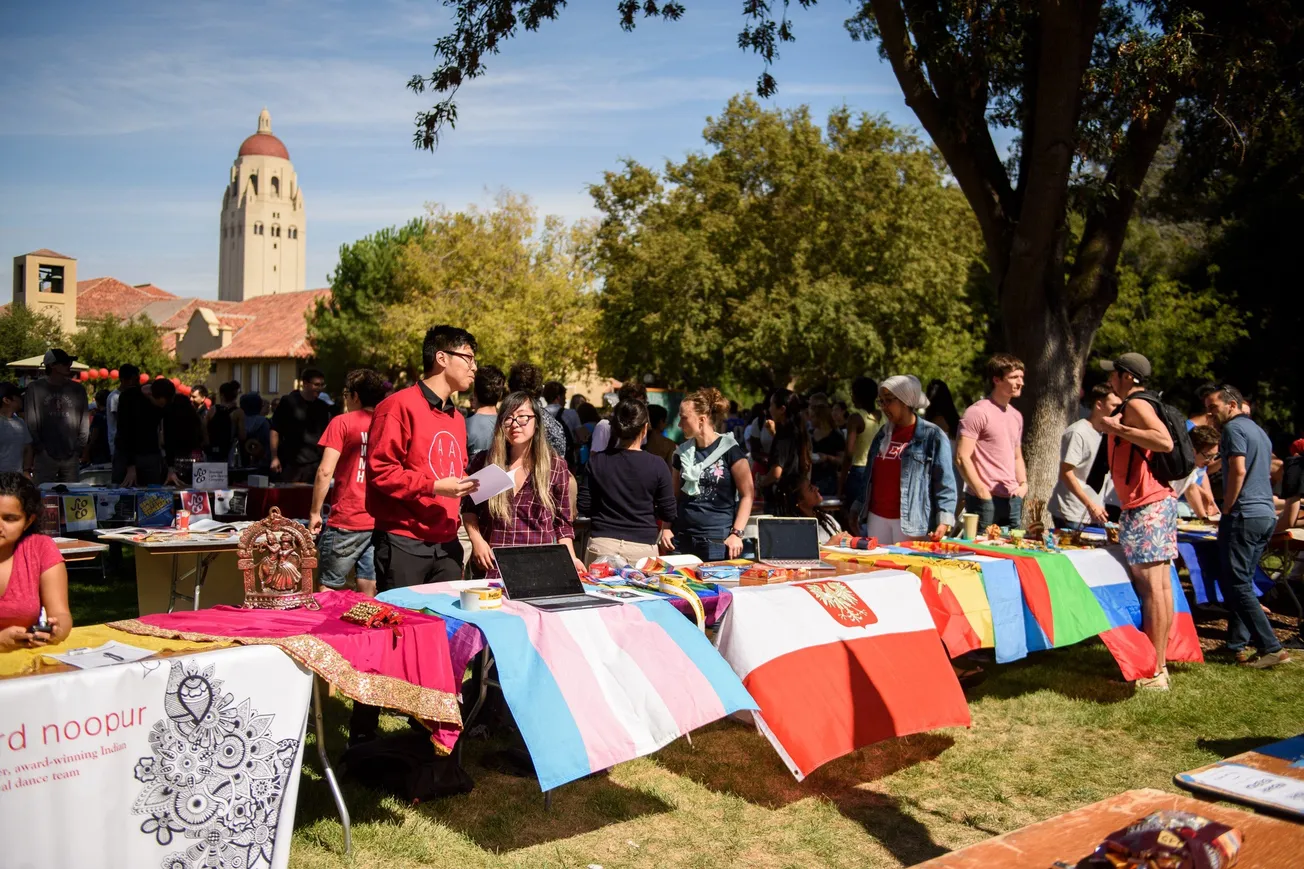Table of Contents
For the past three months, Stanford students passing through White Plaza have witnessed two dueling demonstrations: the pro-Palestine “Stanford Sit-in to Stop Genocide” and the pro-Israel “Blue and White Tent.” Only the former, the pro-Palestine tent city, has held a continuous 24/7 presence as pro-Palestine students have slept in White Plaza. This past week, the Blue and White Tent was destroyed by rainstorms, and a new “sit-in to stop Islamophobia” occupied its original place, preventing it from being rebuilt in the same place. However, the Blue and White Tent has since been rebuilt, albeit in a slightly new location.
But today, the Stanford Administration, in a letter signed only by “Student Affairs,” is ordering the protestors to pack up their tents under the guise of safety concerns. The letter, circulated on Stanford social media app Fizz, says that “the university will continue to allow tabling in White Plaza, consistent with White Plaza’s use as a space for free expression, but overnight displays and camping will no longer be permitted.”

Citing rodents, rain, and wind as hazardous, the University is forcing student activists to abandon their posts and their beliefs. Targeting the overnight protesters of the pro-Palestine sit-in, the University has given the protesters until 8 p.m. tonight to dismantle their tents. If they do not, Stanford has announced in the same letter that, "students who violate the no-camping policy will be subject to a disciplinary referral to the Office of Community Standards and may also be cited for trespass for failing to comply with a university directive."
I, myself, have been a longtime critic of the pro-Palestine tent and its framing of the Israel-Hamas war as “genocide.” I hang an Israeli flag from my dorm room window. But I also recognize that this conflict is complex, and that it is essential to respect the rights of my fellow students to stand up for what they believe in. All students have a right to free expression, and the University’s recent letter is a cookie-cutter example of wielding safetyism to quash students’ right to free expression.
Frankly, the tents have been a PR nightmare for Stanford, and it makes sense that administrators want to wave a magic wand, write a letter, and make them go away. Suspiciously, Stanford’s order for removal comes as Family Weekend quickly approaches, during which hundreds of parents and alumni will arrive on campus. But Stanford’s desire to improve its image by shutting down protests contradicts everything an American university should stand for: free expression, the defense of one’s own beliefs, and open debate. Though the tents will likely turn into tables, open from 8 a.m. to 8 p.m., Stanford’s demands negate the statement of the tents—namely, that students are willing to relocate and sleep in harsh conditions to fight for a cause that they believe in.
Worse still, Stanford’s intense focus on civic education cannot be taken seriously if the University shuts down debate over the most contentious issue of the moment. In the last few years, Stanford has adopted initiatives such as mandatory first year COLLEGE (Civic, Liberal, and Global Education) seminars and Democracy Day to promote civic understanding and open debate on campus. The forced removal of tents shows that this is mere lip service to some whitewashed version of democracy, in which citizens do not actively engage by showing up and making their voices heard. Ironically, Stanford’s letter is anonymous—signed only by “Student Affairs”—another affront to the democratic ideals of institutional transparency and accountability.
Stanford’s record on free speech is already quite suspect. FIRE, the Foundation for Individual Rights and Expression, ranks Stanford 207 out of 254 colleges surveyed. Perhaps one reason for the dismal rating is that the tents’ location in White Plaza is due to White Plaza’s designation as the sole “free speech area” on campus, leaving students to wonder why the other areas on campus are not free speech areas.

Stanford’s letter notes that “the university has a policy of prohibiting overnight camping unless specifically permitted by the university.” Despite this, protesters have camped in White Plaza since early fall quarter. On Fizz, an anonymous student wrote, “did [the admin] think the sit in was just for funsies? Why would they leave just because stanford says they’re angy [sic] now.” This post now has over a thousand upvotes. Another anonymous user shared the sit-in’s flier for a protest against the tents’ removal at 8 p.m. tonight: “HANDS OFF THE SIT IN!!”
The question of whether the protestors will ultimately stand down is uncertain, but I sincerely hope that they do not surrender. In the wake of national attention about free speech on campuses amidst the Israel-Hamas war, now more than ever is the time for students to take part in the civic process and stand up for what they believe in.


